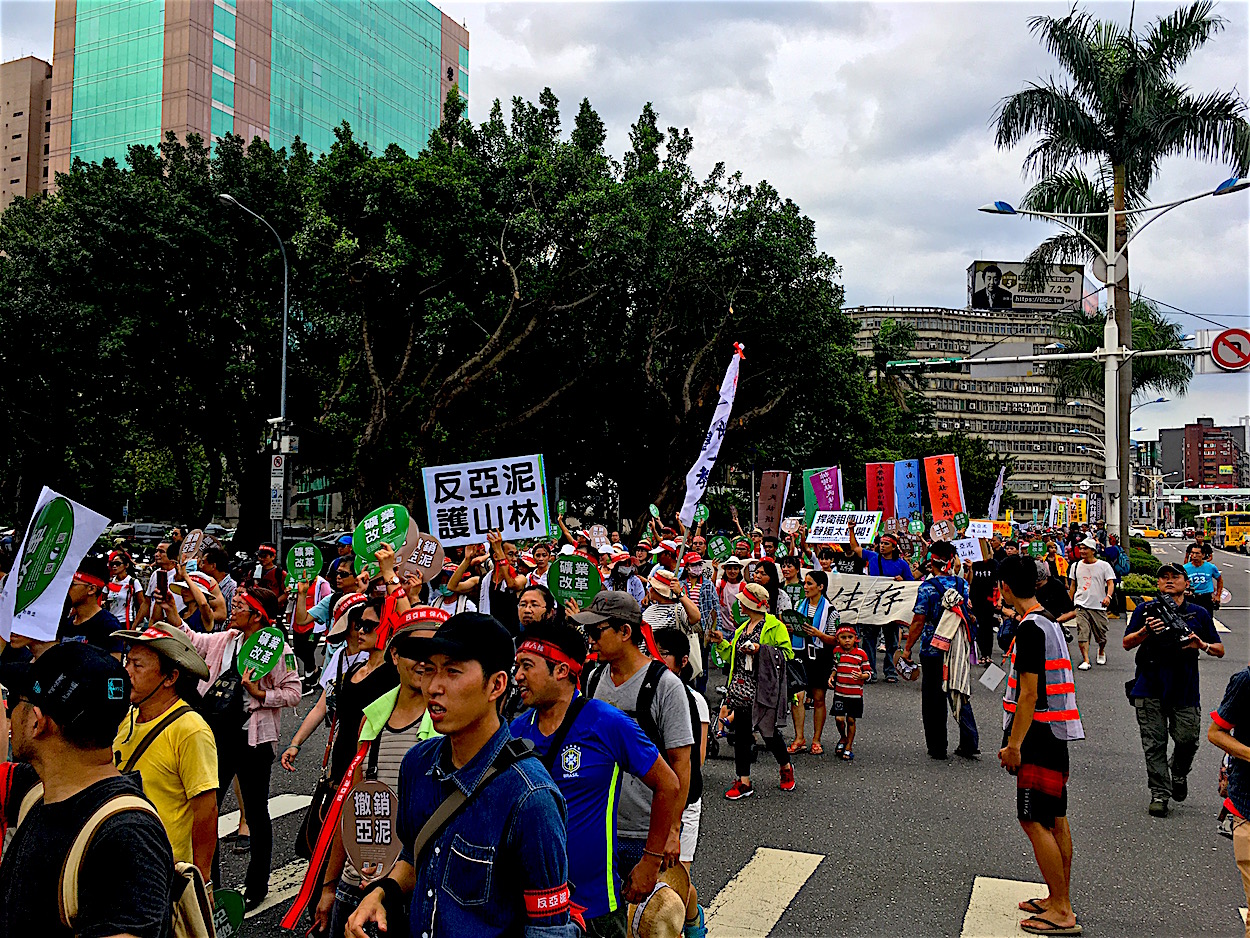by Brian Hioe
語言:
English
Photo Credit: Brian Hioe
WITH THE PASSAGE of transitional justice legislation by the Legislative Yuan, one can in fact expect debates regarding transitional justice in Taiwan to become fiercer, rather than be settled. For one, as is not surprising, the KMT has lashed out against transitional justice legislation in the past as being a form of political persecution. However, at the same time, Taiwanese indigenous have also been highly critical of transitional justice legislation for not including past crimes in the course of Taiwan’s four hundred year history of Han settlement within the purview of ‘transitional justice’.
It is interesting to observe, then, this historical contestation regarding the meaning of transitional justice as reflecting three different views of history. Despite the historic apology made by President Tsai Ing-Wen to Taiwanese indigenous, the DPP continues to see transitional justice as an attempt to settle historic crimes by the KMT party-state and has denied historical ‘equality’, in some sense, to Taiwanese indigenous who may have been apologized to, but are still treated as ‘separate but equal’ insofar as historical crimes against indigenous are excluded from the purview of transitional justice.
 President Tsai Ing-Wen. Photo credit: Tsai Ing-Wen/Presidential Office
President Tsai Ing-Wen. Photo credit: Tsai Ing-Wen/Presidential Office
Yet indigenous, KMT, and DPP perspectives have all internalized in some way that there is a need for something called ‘transitional justice’ in Taiwan, reflective of changes in Taiwanese political discourse since the democratization in which Taiwanese are all too aware that Taiwan has in past decades and centuries been the site of much historical victimization. For example, the KMT has less attempted to lash out against the notion of transitional justice outright or the need for such a thing in Taiwan, but to downplay its crimes in comparison to the Japanese colonial period by calling for the expansion of transitional justice legislation to also cover the Japanese colonial period.
However, while the KMT calls for the extension of the time period covered by transitional justice legislation, the KMT does not call for the expansion of this period to the same extent as Taiwanese indigenous. Seeing as the KMT affirms Chinese identity in Taiwan, this would reflect badly on the KMT. Although the KMT’s version of ‘transitional justice’ may actually be longer and cover a broader span of Taiwanese history than the DPP’s, this is only to cover for its own crimes, and the KMT’s version of ‘transitional justice’ is also partial.
After all, the KMT was also a Han regime, and it, too, was a victimizer of Taiwanese indigenous. Even as it has sometimes sought indigenous support through guarantees of stability for Taiwanese indigenous in return for political stability or sought to appropriate indigenous history into its Han-centric colonial history, such as in holding up clashes between Taiwanese indigenous and Japanese colonial forces as claiming that Taiwanese indigenous are Chinese patriots that fought against the Japanese, this is an example KMT’s claimed version of Chinese history is actually not so expansive as to include indigenous history. Indeed, the KMT upholds many of those that Taiwanese indigenous view as colonial murderers as heroes in its Chinese nationalistic view of history.
And so between the KMT and DPP calls for transitional justice, both have to leave out indigenous calls for transitional justice, even if it is certainly the former which is a great degree more hypocritical than the latter. But despite its apology to Taiwanese indigenous, as evidenced in the DPP-led government’s refusal to return indigenous transitional territories which are not private property to Taiwanese indigenous and continued use of Taiwanese indigenous in a tokenist manner, as part of attempts to distinguish Taiwan from China, the DPP probably is not actually willing to grapple with the whole of wrongdoing to indigenous by Han in the course of Taiwanese history and it continues a pattern of historical and cultural appropriation at times in counter the Chinese nationalism advanced by the KMT or CCP.
 Indigenous demonstrations calling for the return of traditional territories. Photo credit: Brian Hioe
Indigenous demonstrations calling for the return of traditional territories. Photo credit: Brian Hioe
After all, while Taiwanese nationalism sometimes advances the notion of Taiwan’s four hundred history as a way to point out the breadth of Taiwanese history which has no connection to China, for Taiwanese indigenous, this four hundred year history is in fact a history of four hundred years of Han settler colonialism. As a result, whether advanced by the KMT or DPP, visions of transitional justice are partial in nature and historically selective.
What will it take to realize a form of transitional justice capable of addressing the wrongdoings of colonial regimes throughout the entirety of Taiwanese history, then, as a totalizing endeavor and not a selectively partial one, whether this comes from the DPP or the KMT? It does not appear that the political conditions for this to take place in Taiwan exist as of yet.

